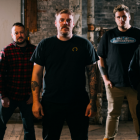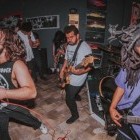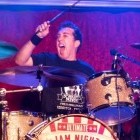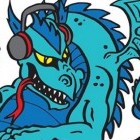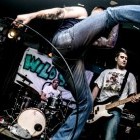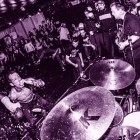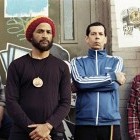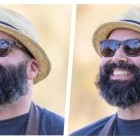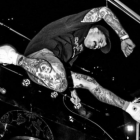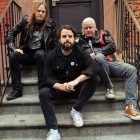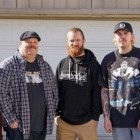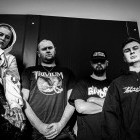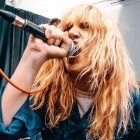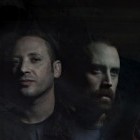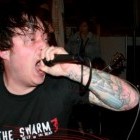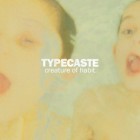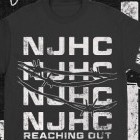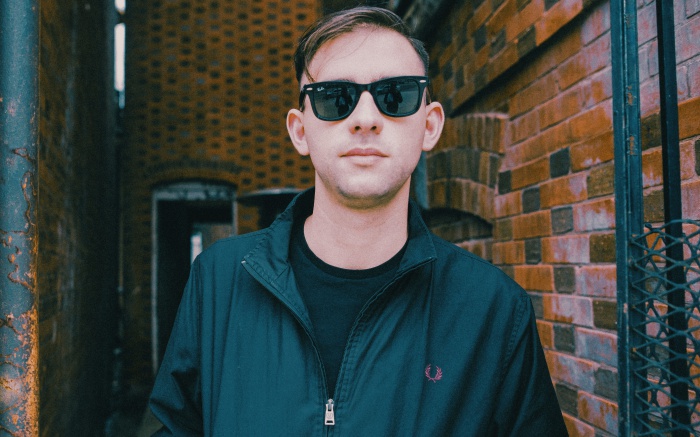
Wyatt Oberholzer is an Philadelphia-based recording engineer. His participation in punk and hardcore as both a musician and engineer has been consistent for over a decade, and his roster keeps growing. Wyatt is rapidly rising as a name in recording for the northeast and midatlantic, and it’s easy to see the attention is deserved. My band, Fixation, has recorded every release with him, and plan on continuing with him for the next. Besides us, he’s worked with bands such as Year of the Knife, No Option, Struck Nerve, and more. There’s a lot of background experience and I wanted to know more about, so I reached out to learn more.
Tell me about your upbringing. Where were you born and raised, what were your parents like, etc?
I’m from Brookline, MA, which is about 5-10 minutes outside of Boston proper. My parents were about as supportive as they could be of my interest in music, though not totally understanding of my interest in punk and hardcore. Neither of them are musicians themselves, but they definitely had an appreciation for a lot of different music. I grew up hearing them listen to stuff like New Order, Depeche Mode, The Smiths, etc. That has definitely stuck with me, and they liked to listen to music loud. When I first started gaining interest in recording, I don’t think they ever thought I was going to pursue it professionally, but they definitely encouraged me tinkering around with it.
When and how did your love for recording develop?
Almost all of my musical knowledge is entirely self-taught and learned by experience. After teaching myself to play guitar, and eventually to write music, I started wanting to record the music I was writing. As a kid in high school, there was no chance I was ever going to be able to afford to go to a proper recording studio. I guess I just instinctively started messing around with Garageband and that kinda snowballed into this whole other obsession, beyond writing and recording my own music. The more I tried to record, the more I found I wasn’t able to make my recordings sound as good as the other bands I liked, which turned into a determination to try to improve my own skills. Sort of like a weird competition with myself.
I had kind of a rough time in middle school and high school, and I had zero interest in going to college, until someone told me I could go to school for recording, and that Drexel in Philadelphia had a good program for that. As soon as I found that out, my mind was pretty made up. Funny enough, I didn’t really learn much in a classroom. But I had access to world-class equipment so I would go into their studios late at night with a friend or two, like midnight to 8 AM, and I’d try recording something and figure out what I was doing.
If you could go back in time, who are some bands that you would have loved to work with?
I’m kind of a freak about drum sound, so to me, good sounding rock/punk drums are a thing that’s only existed for about 20 years now. I wish I had been there for like early Green Day recordings, like Dookie or Nimrod, because those are some of the first punk(ish) recordings with like really crisp, punchy sounding drums. Or maybe Nirvana, too—if Nevermind was released today it could still hold its own, sonically. I also remember hearing that they recorded in a pretty short period of time, like a week or something, and I like to work pretty efficiently, not spending too much time on little tangents.
When did you start working with bands? What were some of your first projects?
I think the very first thing I recorded for a band that got released was this demo I recorded for my friends band called Party Girl (wow, that name aged poorly). I think I was 16 at the time. I borrowed this drum mic kit with like 5 mics in it from a friend and I had this shitty little mixer hooked up to my computer, reading about drum miking techniques as I was going. That might actually still be floating around on the internet somewhere. It kind of sounded like Every Time I Die, if I remember correctly.
As far as records that actually “count” for me, I started asking friends if I could just come help out during recording, and maybe the first thing I really took on as my own was an EP called Pivot Foot I did for my friends’ in a band called Left & Right, which I think we recorded in late 2015. And I think just after that I did the self-titled Drowse 7”. Those were both done live to tape at one of Drexel’s studios when I was still going there.
Who were some of the engineers that you looked up to growing up, and how did it that play into you finding your own style?
I don’t know that I really thought much about other engineers until the last 5 years or so, but I think in the world of punk and hardcore and metal, Kurt Ballou obviously kills it, and for more raw, blown-out sounding stuff, I love Jack Shirley’s work too. They both have really distinct sonic imprints on whatever they work on. Also, I think those guys are both self-taught and I consider myself to be too, for the most part, so that is definitely an inspiration to me.
I try to keep an open mind about recording style and while I think I’m starting to find my own sound, I try to be open to both want the band wants as well as what the current sound of the genre is. Recording is constantly changing because of the rapid advancement of technology, some of which is pretty cool, and I think if I don’t keep an open mind, I could very easily fall by the wayside. That being said, I do prefer to record on an analog desk, like the mid-'90s one I own at my studio, and I like to retain some sense of organicness—as both Ballou and Shirley do—and I think that has helped me develop my own style and approach.
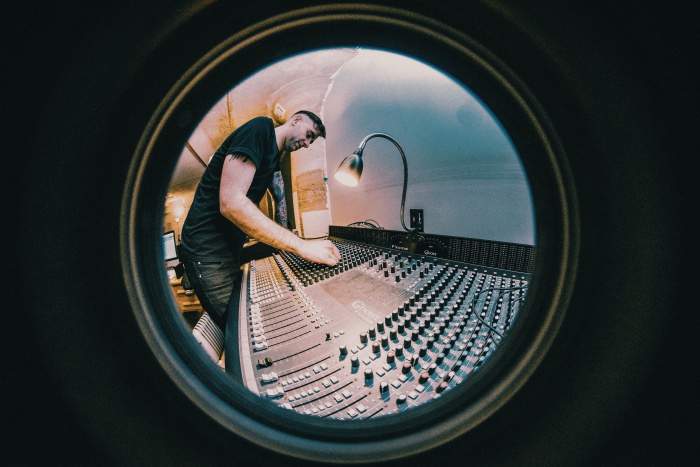
Tell me a bit about The Knife Lair.
The Knife Lair is my studio. It’s in the basement of a big, weird warehouse that’s full of garbage and artists. I don’t really know how else I could begin to describe it—it’s such a strange place. The name was kind of a joke that stuck, but it’s also sort of appropriate for the building it’s in. There’s really no rules there, but that makes it convenient for me to record very loud drums and cranked guitar amps. I ended up there almost 3 years ago now—my friends and I were moving out of this house our bands used to practice in and we needed to find a new practice space. At the time, I was working a restaurant job where I was making enough to start building up a collection of mics and other gear so I just started recording bands there. Since then, I have transitioned to working strictly in music and audio—my day job is as a composer and sound designer for video games—and I work pretty much every weekend recording there.
What are some bands you would love to collaborate with if you could pick three dream opportunities?
I’m pretty picky about newer hardcore bands, but I really like True Love, Candy, and One Step Closer. All of those bands play styles of hardcore that are reminiscent of stuff I grew up on and I wish I could work on more projects like that.
What are the projects you’re most proud of so far, and what are some upcoming that you’re excited about?
You and I have talked about how the Fixation Marked 7” is one of the records that I’m most happy with to-date. I love how that record came out, I love the songs, and I love thinking about how it happened in under a week between the first day of recording and the final masters. That aside, I’m really happy with Year of the Knife’s Ultimate Aggression—they are some of my favorite people to work with and are a very hard-working band. That band does everything in like two takes, they’re total freaks.
I also did an LP for No Option that is just about done and should be out later this year, and I’m really proud of the work everyone involved put into that record. I have a couple things in the works too, a few of which are longer projects, and some of which are actually not hardcore at all. I’m looking forward to adding a little bit of variety to my discography because I certainly don’t only listen to hardcore, but it’s been a while since I worked on anything else.
***
Check out more info on Wyatt's website and follow him on Instagram.
Tagged: chemical fix, fixation, year of the knife

